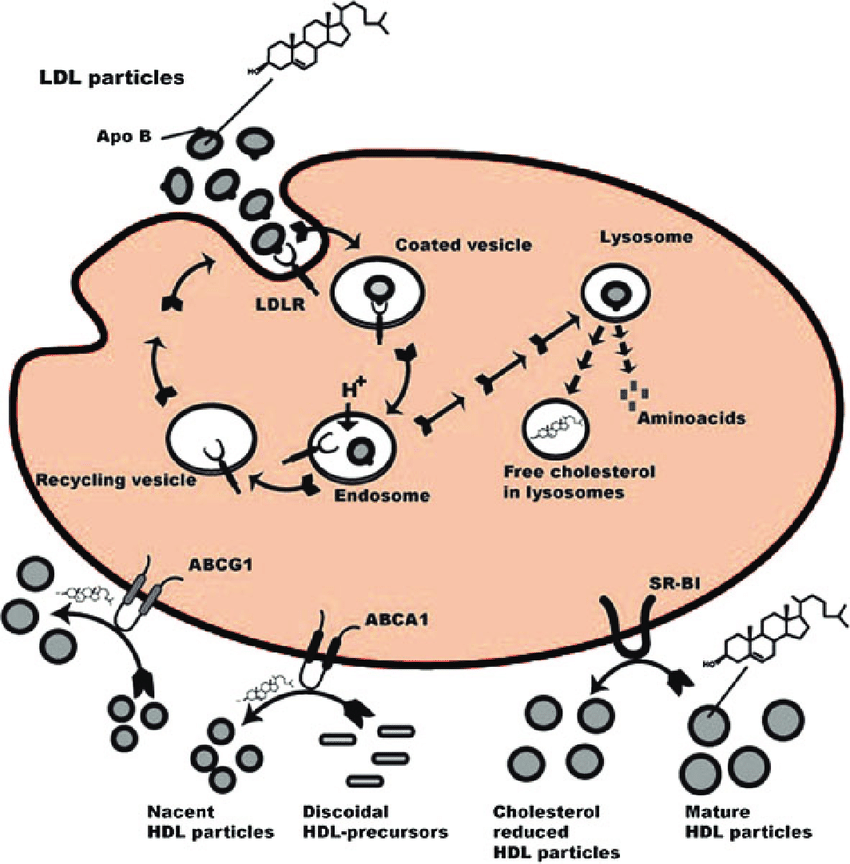This Is How To Control High Cholesterol Naturally
If you're grappling with high cholesterol levels and seeking a natural approach to manage them, you're in the right place. In this article, we'll delve into the specifics of how to control high cholesterol naturally. We'll address the changes you need to make, the timeframe for results, and other crucial aspects of managing cholesterol naturally.
Understanding Cholesterol Levels
Cholesterol testing is a crucial step in assessing one's cardiovascular health. It provides valuable insights into different components, including total cholesterol, triglycerides, HDL (high-density lipoprotein), and LDL (low-density lipoprotein) cholesterol. While all these numbers play a role in understanding overall cholesterol levels, it is LDL cholesterol that poses the greatest risk for heart disease.
LDL cholesterol, often referred to as "bad" cholesterol, is responsible for transporting some cholesterol from the liver to various cells in the body. However, when there is an excess of LDL cholesterol, it can build up in the arteries, leading to plaque formation and potentially increasing the risk of heart disease.
Understanding the significance of LDL cholesterol (and LDL Particles) is essential in managing high cholesterol levels. By focusing on reducing LDL cholesterol, individuals can take proactive steps towards improving their cardiovascular health. This can be achieved through various lifestyle modifications, particularly dietary adjustments.
Diet and LDL Cholesterol
Saturated fats can disrupt the production of LDL receptors, leading to elevated LDL cholesterol levels.

To take control of your cholesterol and embark on a successful cholesterol management journey, it is essential to start by calculating your daily intake of saturated fats. This step acts as a pivotal foundation in understanding the impact of your diet on your cholesterol levels. By reducing your saturated fat intake, you can significantly lower your LDL cholesterol levels.
As noted, saturated fats have been found to disrupt the production of LDL receptors. This ultimately leads to elevated LDL cholesterol levels. By consciously monitoring and reducing your saturated fat intake, you can increase LDL receptors, reduce LDL cholesterol and effectively reduce the risk of heart disease.
When considering the optimal range for saturated fat intake, it is important to tailor it to your individual starting point and body's response. While a daily intake range of 10 to 20 grams may be suitable for some individuals, others may need to further reduce saturated fat to 10 to 15 grams daily for optimal results. It is crucial to note that the focus should be on saturated fat, rather than eliminating all fats from your diet.
Even a modest reduction of 10% in saturated fat intake can have a positive impact on your LDL cholesterol levels. This reduction can be achieved by making simple dietary adjustments, such as choosing leaner cuts of meat, opting for low-fat dairy products, and incorporating more plant-based protein sources into your meals. By making these conscious choices, you can gradually shift towards a healthier and more cholesterol-friendly diet.
Timeline for Results
It is important to keep in mind that the timeline for seeing improvements in your cholesterol levels depends on the extent of your dietary changes and your commitment to consistency. While some individuals may start noticing changes in their lab results within a month of making dietary improvements, it may take up to four to six months for the full effects of these changes to manifest. Patience and perseverance are key in sustaining long-term improvements in your cholesterol levels.
Remember, the goal is not to simply trick the lab results but to maintain a healthy diet over the long term. Finding a dietary approach that you can sustain and enjoy is crucial in keeping your cholesterol levels in check.
Remember, it's not about tricking the lab results but maintaining a healthy diet over the long term. Find a dietary approach that you can sustain to keep cholesterol levels in check.
The path to controlling high cholesterol naturally lies in dietary adjustments, primarily by reducing saturated fat intake. Understanding your cholesterol levels, making calculated changes, and exhibiting patience in observing results are essential elements of this journey. Small dietary modifications can yield significant improvements in LDL cholesterol levels over time. It's advisable to consult with your healthcare provider for personalized guidance on your natural cholesterol management plan.
















